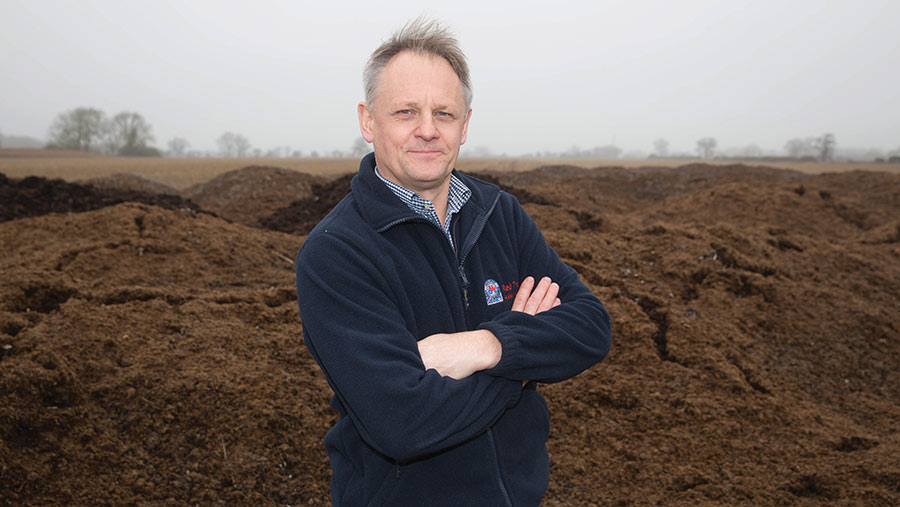Farmer Focus: 2020: One of the wettest years we’ve ever seen
 © Tim Scrivener
© Tim Scrivener Well, 2020 certainly left us with a bang, or should I better describe it as a deluge?
We received 75mm of rain in one day and a total of 225mm in December, making it one of the wettest months ever recorded.
The year ended on a high – of more than 1,000mm of rain, one of the wettest years we have ever seen.
See also: 4 steps to minimising the risk of growing spring crops
The downpour two days before Christmas, falling on to saturated ground, resulted in quite a bit of flooding.
Ditches and drains did their best but were eventually overcome, which led to accusations as to who should maintain the infrastructure.
Thankfully, our river meadows performed their role of temporary reservoirs by storing water that would otherwise end up in the middle of villages and towns further downstream.
The disappointing effect of that much rain, is, of course, the fact that it can undo a lot of good work.
This happens no matter how many cover crops you grow, how much you increase soil organic matter levels, what cultivation technique you employ, how wide your rotation is or how well you establish your crops in certain circumstances.
There is just too much water – well above the capacity of the soil to retain it.
As farmers we will all have experienced similar situations. The challenge is what we do about it. How do we react to help mitigate similar damage in the future, while still ensuring that we continue to produce food and fuel from our land?
In our case, we will be continuing to implement the good work that we have been engaged with over the past few years: the spreading of thousands of tonnes of organic matter, the growing of hundreds of hectares of cover crops, better cultivation techniques, and treating every situation as unique can only help. We may consider some rotation changes.
As we move forwards, the challenge will be trickier, as, unlike now where we have two bites of the cherry, with a base payment and an output, every hectare will soon have only one output – either productive farmland or producing a public good.
Welcome to the brave new world, where we are free of bureaucracy and regulation… Dream on!

